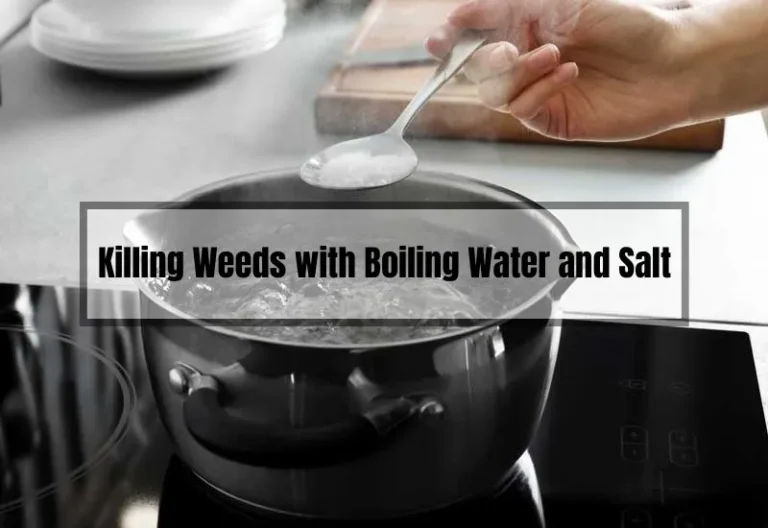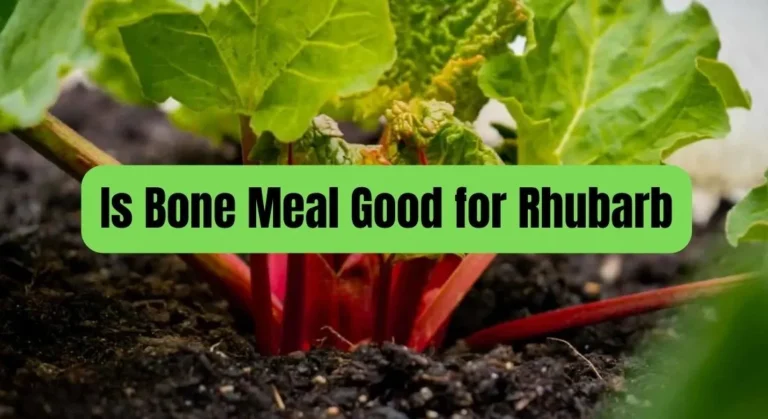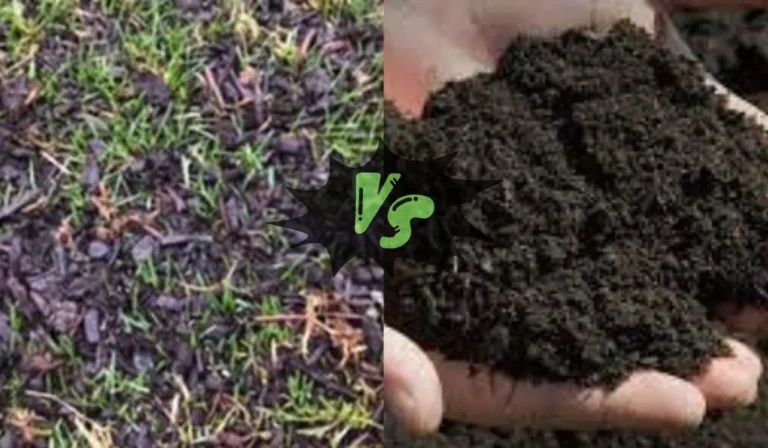5 Best Organic Fertilizer for Rhubarb: Boost Your Harvest Naturally
Looking for the best organic fertilizer for your rhubarb plants? Rhubarb is a heavy feeder and needs plenty of nutrients to thrive.
Composted manure is one of the top choices due to its rich nutrient content, including nitrogen, phosphorus, and potassium. It also enhances soil structure and water retention.
Other options include fish emulsion, bone meal, and kelp meal, each with specific benefits. Combining these organic fertilizers ensures a balanced diet for your rhubarb.
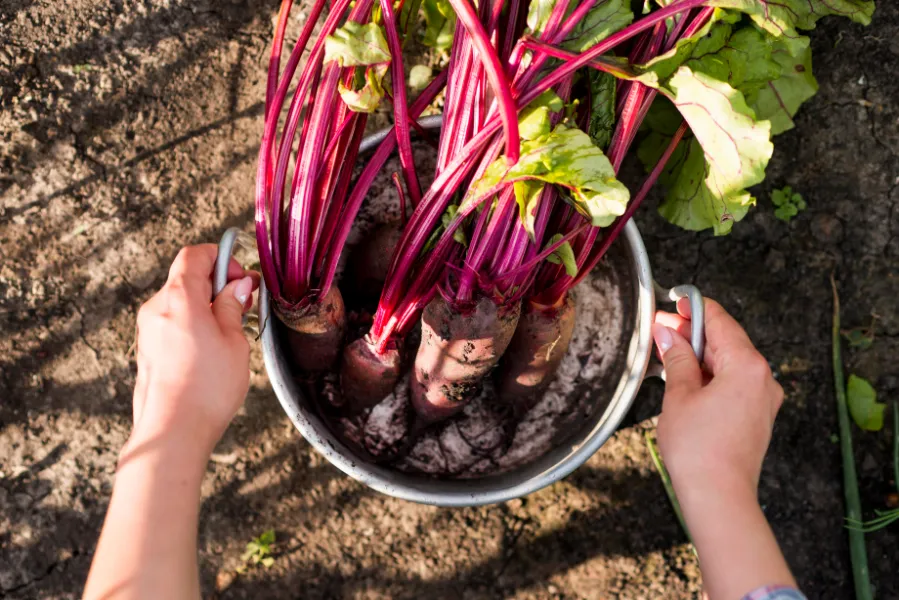
5 Best Organic Fertilizer for Rhubarb
If you’re looking for the best organic fertilizer for rhubarb, you’re in the right place. Rhubarb is a heavy feeder, which means it needs a lot of nutrients to grow properly.
Fortunately, there are many organic fertilizers that can help you achieve a healthy and productive crop.
Here is the 5 best organic fertilizers for rhubarb:
1. Compost
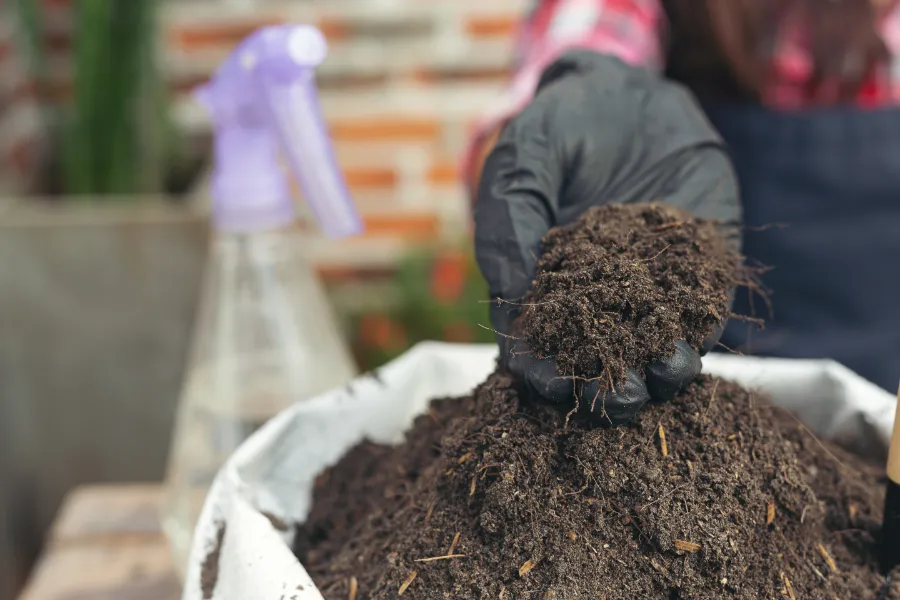
Compost is a great organic fertilizer for rhubarb. It’s rich in nutrients, including nitrogen, phosphorus, and potassium, which are essential for plant growth.
Compost also improves soil structure and helps retain moisture, which is important for rhubarb. To use compost as a fertilizer, spread a layer of compost around the base of your rhubarb plants, making sure to keep it away from the stems.
2. Manure
Manure is another excellent organic fertilizer for rhubarb. It’s high in nitrogen, which is important for plant growth, and also contains other important nutrients like phosphorus and potassium.
However, it’s important to use well-aged manure, as fresh manure can burn your plants. To use manure as a fertilizer, spread a layer of well-aged manure around the base of your rhubarb plants.
3. Fish Emulsion
Fish emulsion is a liquid organic fertilizer that’s made from fish waste. It’s high in nitrogen, which is important for plant growth, and also contains other important nutrients like phosphorus and potassium.
To use fish emulsion as a fertilizer, dilute it with water according to the package instructions and apply it to the soil around the base of your rhubarb plants.
4. Worm Castings
Worm castings are another great organic fertilizer for rhubarb. They’re rich in nutrients like nitrogen, phosphorus, and potassium, and also contain beneficial microorganisms that can help improve soil health.
To use worm castings as a fertilizer, spread a layer of them around the base of your rhubarb plants.
5. Bone Meal
Bone meal is a slow-release organic fertilizer that’s high in phosphorus, which is important for root development and flower production.
To use bone meal as a fertilizer, sprinkle it around the base of your rhubarb plants and work it into the soil.
Understanding Organic Fertilizers
If you’re looking for a natural way to fertilize your rhubarb, then organic fertilizers are the way to go.
Organic fertilizers are made from natural materials, such as animal manure, plant matter, and other organic substances. They’re great for improving soil health, providing essential nutrients, and promoting healthy plant growth.
One of the benefits of organic fertilizers is that they’re slow-release, which means they release nutrients slowly over time. This allows plants to absorb the nutrients as they need them, rather than being overwhelmed with nutrients all at once. Organic fertilizers also improve soil structure, which helps plants to grow strong and healthy.
When choosing an organic fertilizer for your rhubarb, look for one that’s high in nitrogen, phosphorus, and potassium. These are the three primary nutrients that plants need to grow and thrive.
You can find organic fertilizers with different ratios of these nutrients, depending on the specific needs of your plants.
Here are some common types of organic fertilizers:
- Compost: Compost is made from decomposed organic matter, such as food scraps, yard waste, and leaves. It’s a great all-purpose fertilizer that provides a wide range of nutrients to your plants.
- Manure: Animal manure, such as cow, horse, or chicken manure, is a great source of nitrogen, phosphorus, and potassium. Just be sure to let the manure age for a few months before using it as a fertilizer, as fresh manure can burn your plants.
- Bone meal: Bone meal is made from ground-up bones and is high in phosphorus. It’s a great fertilizer for promoting root growth and flower development.
- Fish emulsion: Fish emulsion is made from fish waste and is high in nitrogen. It’s a great fertilizer for promoting leafy growth.
When using organic fertilizers, it’s important to follow the instructions carefully. Too much fertilizer can be harmful to your plants, so be sure to apply it sparingly. You can also mix different types of organic fertilizers together to create a custom blend that meets the specific needs of your plants.
Benefits of Organic Fertilizers for Rhubarb
If you want to grow healthy and delicious rhubarb, using organic fertilizers is the way to go.
Organic fertilizers are made from natural materials and provide numerous benefits to your plants, the environment, and your health. In this section, we will explore the benefits of organic fertilizers for rhubarb.
Health Benefits
Organic fertilizers are made from natural materials such as plant and animal waste, bone meal, and compost. These materials contain essential nutrients such as nitrogen, phosphorus, and potassium that are necessary for the growth and development of plants. Unlike synthetic fertilizers, organic fertilizers release these nutrients slowly over time, providing a steady supply of nutrients to your rhubarb plants.
Using organic fertilizers also promotes soil health. Organic fertilizers contain microorganisms that help break down organic matter in the soil, making it more fertile and better able to retain moisture. This, in turn, helps your rhubarb plants grow stronger and healthier.
Environmental Benefits
Organic fertilizers are better for the environment than synthetic fertilizers. Synthetic fertilizers are made from chemicals that can be harmful to the environment and can contribute to pollution of waterways and soil.
Organic fertilizers, on the other hand, are made from natural materials that are biodegradable and do not harm the environment.
Using organic fertilizers also helps to reduce greenhouse gas emissions. Synthetic fertilizers are made from fossil fuels, which contribute to climate change. Organic fertilizers, on the other hand, are made from renewable resources, such as plant and animal waste, which have a lower carbon footprint.
Choosing the Right Organic Fertilizer for Rhubarb
Rhubarb is a heavy feeder that requires a lot of nutrients to grow well. Choosing the right organic fertilizer for rhubarb is essential to ensure that your rhubarb plants get the essential nutrients they need to thrive.
In this section, we will discuss the nutrient requirements of rhubarb and the soil conditions that are best for growing healthy rhubarb plants.
Nutrient Requirements
Rhubarb requires a balanced combination of nitrogen, phosphorus, and potassium to grow well. Nitrogen is essential for leafy growth, while phosphorus is necessary for root development and flower formation. Potassium is crucial for overall plant health and disease resistance.
When selecting an organic fertilizer for rhubarb, look for a product that has an N-P-K ratio of around 10-10-10 or 5-4-6. These ratios indicate the percentage of nitrogen, phosphorus, and potassium in the fertilizer. You can also use something called an N-P-K ratio to easily determine the formulation of any given fertilizer.
Some of the best organic fertilizers for rhubarb include:
- Amazon True Organic Fruit & Nut Tree Food Granular Fertilizer 4 lbs – CDFA, OMRI Listed for Organic Gardening NPK 5-4-6
- Osmocote Smart Release Plant Food Flower & Vegetable (14-14-14)
- Espoma Organic Garden-Tone Herb & Vegetable Fertilizer (5-3-3)
Soil Conditions
Rhubarb prefers well-draining soil that is rich in organic matter. Before planting rhubarb, amend the soil with compost, rotted manure, or anything high in organic matter. This will help improve soil fertility and drainage, which is essential for growing healthy rhubarb plants.
Avoid adding chemical fertilizers when planting rhubarb or during the first year of growth, as direct contact with nitrates can kill the roots. Instead, use organic fertilizers, such as those listed above, to provide your rhubarb plants with the essential nutrients they need to thrive.
In addition to using the right organic fertilizer, it’s also essential to maintain proper soil pH levels. Rhubarb prefers a slightly acidic soil pH between 6.0 and 6.8. You can test your soil pH using a soil pH test kit, which is available at most garden centers.
By choosing the right organic fertilizer and maintaining proper soil conditions, you can ensure that your rhubarb plants grow healthy and strong, producing delicious stalks for years to come.
Top Organic Fertilizers for Rhubarb
Rhubarb is a hardy plant that can thrive in a variety of soil types, but it still needs the right nutrients to grow strong and produce healthy stalks.
Organic fertilizers are a great option for rhubarb since they provide the necessary nutrients without the use of harmful chemicals. Here are some of the top organic fertilizers for rhubarb:
- Compost
- Manure
- Bone Meal
- Fish Emulsion
different types of organic fertilizers that can be used to fertilize rhubarb plants.
Kelp
Kelp is a natural source of potassium, which is an essential nutrient for the growth of rhubarb plants. It can be added to the soil when planting rhubarb or during the growing season.
Kelp can also improve soil structure and water-holding capacity. It is important to note that kelp should be used in moderation as it can be harmful to plants if used in excess.
Grass Clippings
Grass clippings are a great source of nitrogen, which is an essential nutrient for the growth of rhubarb plants. They can be added to the soil as a mulch or worked into the soil when planting rhubarb.
It is important to note that grass clippings should be used in moderation as they can create a nitrogen imbalance in the soil if used in excess.
All-purpose Organic Fertilizer
All-purpose organic fertilizers are a great way to provide essential nutrients to rhubarb plants. They are usually made from a combination of natural ingredients like bone meal, kelp, and composted manure.
All-purpose organic fertilizers can be used when planting rhubarb or during the growing season. They are a great option for garden plants, shrubs, and perennial plants.
Applying Organic Fertilizers to Rhubarb
Rhubarb is a heavy feeder, meaning it requires a lot of nutrients to grow and thrive. Applying organic fertilizers to your rhubarb plant is an excellent way to ensure that it receives the necessary nutrients for optimal growth and yield.
In this section, we will discuss the timing, quantity, and method of applying organic fertilizers to your rhubarb plant.
Timing
The best time to fertilize your rhubarb plant is in early spring, just as new growth begins to emerge.
This is when your rhubarb plant needs the most nutrients to support its growth. You can also fertilize your rhubarb plant in the fall, but it is not as necessary as in the spring.
Quantity
When it comes to applying organic fertilizers to your rhubarb plant, less is more. Over-fertilizing can lead to excessive leaf growth and reduced fruit production. A general rule of thumb is to apply one pound of organic fertilizer per 100 square feet of garden bed.
However, this may vary depending on the type of fertilizer you are using, so be sure to read the manufacturer’s instructions for specific guidelines.
Method
There are several methods for applying organic fertilizers to your rhubarb plant. The most common methods include:
- Top-dressing: Sprinkle the organic fertilizer on top of the soil around the base of the plant, being careful not to get any on the leaves. Water the area well after applying the fertilizer.
- Side-dressing: Apply the organic fertilizer in a narrow trench alongside the row of plants. Cover the fertilizer with soil and water the area well.
- Compost or manure: Spread a layer of compost or well-rotted manure over the soil surface instead of using a commercial fertilizer. This will add organic matter to the soil and provide a slow-release source of nutrients.
When applying organic fertilizers, be sure to follow the manufacturer’s instructions and wear gloves to protect your skin. Always water the area well after applying the fertilizer to help it penetrate the soil and reach the roots of the plant.
The Importance of Soil pH for Rhubarb
Rhubarb is a bit of a Goldilocks when it comes to soil pH. It prefers something not too acidic, not too alkaline, but just right—around 6.0 to 6.8.
Using Lime to Adjust Soil pH
If your soil is more on the acidic side, lime can help raise the pH. Don’t go overboard, though. Like too much of a good thing, too much lime can throw your soil out of whack.
Using Sulfur to Adjust Soil pH
On the other hand, if your soil is too alkaline, sulfur is your new best friend. It helps lower the soil pH, creating the perfect environment for your rhubarb to thrive.
Other Important Considerations for Growing Rhubarb
So, we’ve talked a lot about nutrients, but let’s not forget about some other key elements of rhubarb care.
Sunlight Requirements
Rhubarb loves the sun, just like me on a day off. So, make sure it gets at least six hours of sunlight each day.
Watering and Drainage
Rhubarb needs consistent watering, but it definitely doesn’t like waterlogged soil. So, make sure your soil has good drainage.
FAQs
What is the best time to fertilize rhubarb?
Rhubarb is a heavy feeder, and it requires a lot of nutrients to produce a good yield. The best time to fertilize rhubarb is in early spring, just as the new growth is starting to emerge. This is when the plants are most active and can best absorb the nutrients. You can also fertilize again in midsummer if you notice that the plants are not growing as well as they should be.
Can I use chemical fertilizers on my rhubarb plants?
While chemical fertilizers can be effective, they can also contain harmful chemicals that can damage the soil and the plants. It is generally recommended to avoid using chemical fertilizers on rhubarb plants, especially during the first year of growth. Direct contact with nitrates can kill the roots.
Can I use synthetic fertilizers on my rhubarb plants?
Synthetic fertilizers are not recommended for rhubarb plants, as they can contain harmful chemicals and do not provide the essential nutrients that the plants need to grow. Instead, it is best to use organic fertilizers that are rich in nutrients and safe for the environment.
What is the best organic fertilizer for rhubarb?
There are several organic fertilizers that are ideal for rhubarb plants. Composted manure, kelp, and superphosphate are all excellent choices. You can also use an all-purpose organic fertilizer that is slightly acidic, such as a 10-10-10 fertilizer. This will provide all of the essential nutrients that the plants need to grow and produce a good yield.
How often should I fertilize my rhubarb plants?
Rhubarb plants should be fertilized once in early spring and again in midsummer if necessary. Over-fertilizing can cause the plants to produce too many leaves and not enough flower stalks. It is important to follow the recommended nutrient requirements for rhubarb and to avoid using too much fertilizer.
Conclusion
In conclusion, choosing the right organic fertilizer for rhubarb is important to ensure a healthy yield. Composted manure, bone meal, kelp, grass clippings, and all-purpose organic fertilizers are all great options to provide essential nutrients to rhubarb plants.
It is important to follow the nutrient requirements of your rhubarb plants and avoid using harmful chemicals found in commercial fertilizers. By using organic fertilizers, you can ensure that your rhubarb plants grow healthy and produce delicious flower stalks.
Related Posts:


